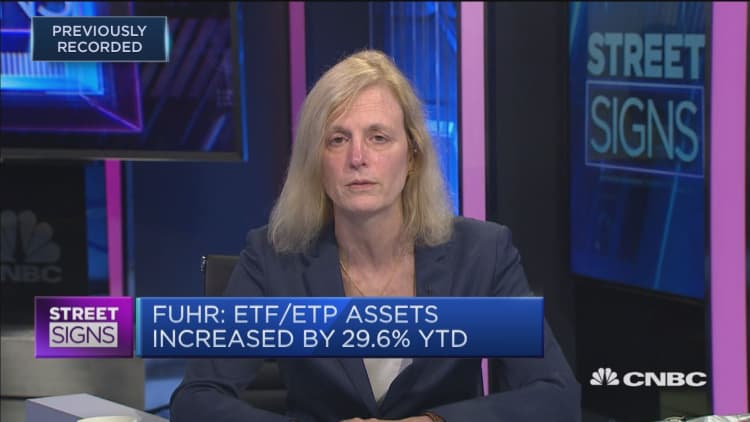A new exchange-traded fund aims to capitalize on retail's decline.
Last week, ProShares rolled out its Decline of the Retail Store ETF (EMTY), which is designed to increase in value when the stocks in the index it tracks decline.
The fund makes bets against an index of 56 brick-and-mortar retailer stocks, including Gap, Macy's and Best Buy. Nearly 40 of the stocks are down for the year and 25 have fallen at least 20 percent.
The chart below shows the 25 stocks in the fund that are down at least 20 percent in 2017:
"Investors are witnessing signs of trouble in the malls and falling stock prices in the markets," Michael Sapir, CEO of ProShare Advisors, said in a press release. "For the first time, investors can turn these trends into a potential investment opportunity through an ETF."
The fund does this by taking a short position against the Solactive-ProShares Bricks and Mortar Retail Store Index. Short selling is a strategy that aims to make money on falling share prices by selling borrowed stocks and buying them back later, ideally at a lower price, to be returned for a profit.
For years, traditional brick-and-mortar retailers have been pressured by changing consumer shopping trends. More people have opted to buy online and have their goods delivered rather than actually going to a physical store and buying them there.
Over the past three years, the SPDR S&P Retail ETF (XRT), which mostly tracks traditional retailers, is down more than 11 percent.
The clear winner has been e-commerce giant Amazon.com, which sells everything from clothes to electronics to groceries. The company's stock is up 244 percent over the past three years, not only outperforming the XRT, but also the broader S&P 500.
Retail's downturn has even led Bespoke Investment Group to create the "Death By Amazon" index, which tracks 62 brick-and-mortar retailers that have been affected by Amazon and online shopping. The index is down 15 percent this year.
"Retail is being profoundly disrupted by shoppers moving online, oversaturated markets and changing consumer behaviors," ProShare Advisors' Sapir said. "While some retailers that rely on in-store sales may be able to adapt, we believe those will be a minority, and that the long-term trend is against these companies."
The EMTY fund is down about 3 percent since launching as the holiday season began, a period that's historically been bullish for brick-and-mortar retailers.
WATCH: The many different types of ETFs



